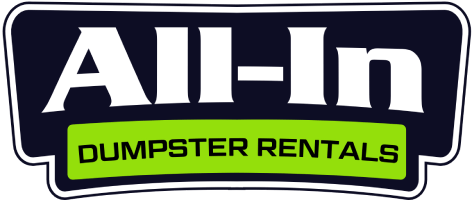An essential step-by-step guide for waste businesses to conduct internal environmental compliance audits, helping you identify and address regulatory gaps before official inspections.
_______________________________
Environmental Compliance Auditing for Waste Management Companies
Running a waste management business means navigating a complex web of environmental regulations. At All-In Dumpster Rentals, we understand the challenges of staying compliant while running day-to-day operations. Environmental compliance audits are your first line of defense against potential violations and penalties. These internal reviews help you spot and fix issues before regulators arrive at your doorstep. This guide walks you through creating an effective audit process that protects your business, the community, and the environment we all share.
Why Environmental Compliance Matters in Waste Management
For waste businesses, environmental compliance isn’t just about avoiding fines—it’s about maintaining your reputation and operating license. Non-compliance can lead to serious consequences: hefty penalties, operational shutdowns, and damage to community relationships that take years to rebuild. As a family-owned business serving Asheville and surrounding counties, we’ve seen firsthand how proper compliance practices build trust with customers and regulators alike.
Regular self-audits give you control over your compliance status instead of waiting for regulatory inspections to reveal problems. They also demonstrate your commitment to responsible waste handling—something today’s environmentally conscious customers actively seek out.
Building Your Environmental Compliance Audit Team
The success of your compliance audit starts with assembling the right team. Include staff members from different departments who understand daily operations. Consider operations managers, field supervisors, administrative staff, and drivers who handle waste directly. Each brings a unique perspective on potential compliance gaps.
For smaller operations like local dumpster rental companies, you might wear multiple hats yourself. In that case, consider bringing in an outside consultant for occasional audits to get fresh eyes on your processes. The key is balancing detailed knowledge of your business with objective assessment.
Step-by-Step Environmental Compliance Audit Process
Step 1: Identify Applicable Regulations
Start by creating a comprehensive list of all regulations that apply to your waste management operation. This typically includes federal EPA requirements, state environmental agency rules, local ordinances, and any industry-specific standards. For dumpster rental businesses in the Asheville area, pay particular attention to North Carolina Department of Environmental Quality requirements and local waste disposal restrictions.
Step 2: Develop Audit Checklists
Create detailed checklists for each operational area based on regulatory requirements. Include items like proper waste classification, storage practices, transportation procedures, record-keeping systems, and employee training verification. Your checklists should be specific enough to catch common compliance issues but manageable enough to complete regularly.
Step 3: Conduct the Audit
Schedule time for thorough inspection of facilities, equipment, and documentation. Take photos to document current conditions. Interview staff about daily practices—often, the people handling waste directly have the clearest insight into potential compliance gaps. Make sure to review records for completeness and accuracy, as documentation errors are among the most common compliance issues.
Step 4: Document Findings
Record all observations, including both compliance successes and areas needing improvement. Be specific about what you found, where you found it, and which regulations apply. This documentation becomes your roadmap for improvements and provides evidence of your good-faith compliance efforts if regulators ever question your practices.
Step 5: Create Action Plans
For each compliance gap, develop a clear plan for correction. Assign specific responsibilities, set realistic deadlines, and allocate necessary resources. Prioritize issues that pose immediate environmental risks or could result in significant penalties.
Step 6: Implement Corrective Actions
Put your action plans into motion, making sure everyone understands their responsibilities. This might involve updating operational procedures, providing additional staff training, improving record-keeping systems, or investing in new equipment.
Step 7: Follow Up and Verify
After implementing changes, schedule follow-up reviews to verify that corrective actions were effective. This closed-loop approach ensures continuous improvement in your compliance program.
Common Compliance Issues in Waste Management
While conducting audits for our own operations, we’ve identified several areas where waste management companies commonly face compliance challenges:
Improper waste classification: Correctly identifying waste types is fundamental to proper handling. Regular training helps staff recognize prohibited materials like hazardous waste, electronics, or tires that require special disposal methods.
Inadequate record-keeping: Environmental regulations require detailed documentation of waste handling. Develop systems to track waste from receipt through final disposal, keeping records organized and easily accessible.
Stormwater management: Outdoor waste storage areas must be designed to prevent contaminated runoff. Regular inspection of drainage systems and containment areas helps prevent violations.
Equipment maintenance: Poorly maintained vehicles and containers can lead to leaks or spills. Implement regular inspection schedules for all equipment used in waste handling.
Staff training gaps: Even with perfect systems, untrained staff can cause compliance issues. Document all training activities and conduct refresher sessions regularly.
Making Compliance Part of Company Culture
The most effective environmental compliance programs become part of daily operations, not just occasional audit events. As a family-owned business serving our neighbors in Asheville and surrounding areas, we’ve found that emphasizing the why behind compliance requirements helps build staff commitment. When employees understand how proper waste handling protects our local waterways, air quality, and community health, compliance becomes a point of pride rather than just another requirement.
Regular communication about compliance expectations, recognition of staff who identify potential issues, and transparency about audit findings all help build this culture. Remember that environmental compliance is a journey, not a destination—regulations evolve, and so should your practices.
Ready to Improve Your Environmental Compliance?
At All-In Dumpster Rentals, we’re committed to responsible waste management practices that protect our beautiful Western North Carolina environment. If you’re looking for a waste partner who takes compliance seriously, we’re here to help with roll-off dumpster rentals for projects of all sizes.
Contact us today at 828-707-6422 for a free quote or to discuss how our services can support your own environmental compliance efforts. Your comfort and convenience matter to us, and we’ll happily work with you to find waste solutions that meet both your needs and regulatory requirements.
FAQ Schema
